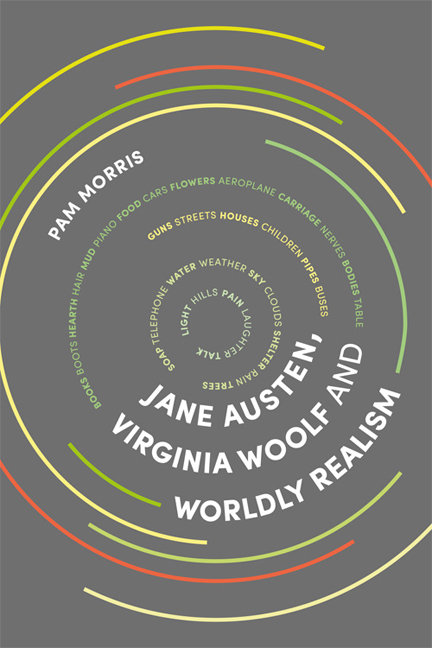Introduction: Worldly Realism
Summary
He … was driven by intellectual fervour, a burning belief in abstract nouns such as ‘sovereignty’ and ‘freedom’. Those ideas are noble in themselves, of course they are. But not when they are peeled away from the rough texture of the real world. For when doctrine is kept distilled, pure and fervently uncontaminated by reality, it turns into zealotry.
Jonathan Freedland, The Guardian, 2 July 2016Jacob Flanders’ room in Cambridge contains the works of only one woman writer among all the many male-authored texts scattered about; that writer is Jane Austen. Even so, her presence is there by default, in ‘deference, perhaps, to someone else's standard’. It is as if Woolf pays a quietly humorous tribute here, across the space of a hundred years, to her most important literary progenitor. Yet had Jacob availed himself of the pleasure of reading Northanger Abbey (1st drafts c.1798–9; pub. 1816), he might well have been struck by the similarities between its narrative, initiating Austen's mature style, and his own, in which Woolf, too, establishes her mature artistic form. In those two works, respectively, Northanger Abbey and Jacob's Room, both writers find the means and the voice to articulate the sceptical irreverence which constitutes the distinctive force of their artistic sensibilities and vision, a scepticism that is their shared inheritance from the tradition of Scottish Enlightenment.
In these early novels, both writers are consciously challenging the authority of previous representational modes. Jacob's Room, appearing in 1922, the same year as Ulysses and The Waste Land, has, not surprisingly, been largely considered as part of the modernist rejection of traditional literary forms. Yet, Alex Zwerdling is surely right when he suggests that critical commentary on the novel can only illuminate if it moves beyond a mere inventory of innovative techniques. Also required is consideration of why Woolf felt the need for a new kind of narrative. Slotting writers into their generic pigeon hole can close off wider recognition of their artistic aims and achievements. Discussion of Northanger Abbey tends also to focus upon generic convention, especially Austen's debunking of the gothic novel. For some critics, like Alistair Duckworth, the novel ultimately fails because, while it makes fun of gothic form, the narrative remains too indebted to it to achieve its proposed moral vision.
- Type
- Chapter
- Information
- Jane Austen, Virginia Woolf and Worldly Realism , pp. 1 - 26Publisher: Edinburgh University PressPrint publication year: 2017



